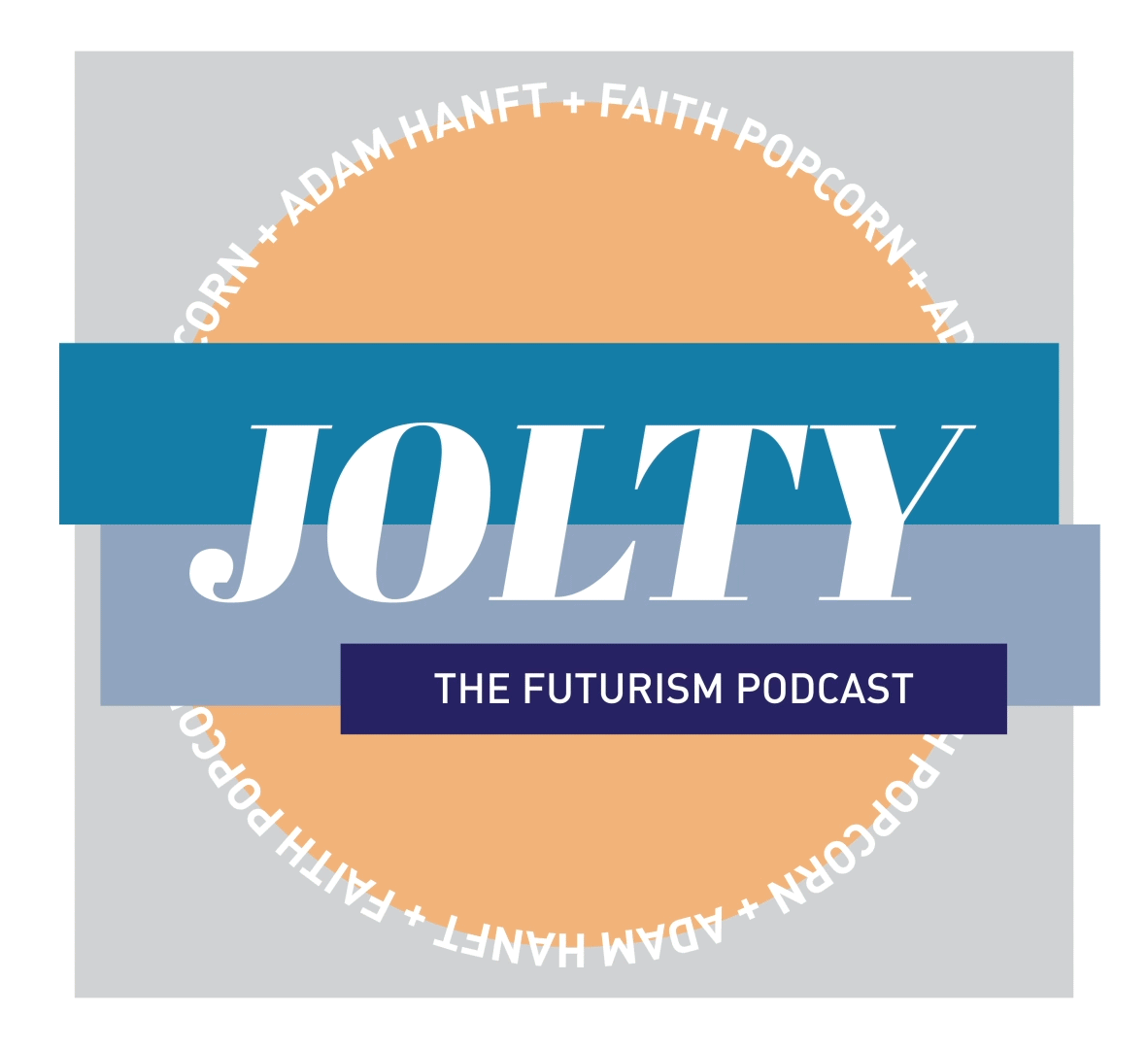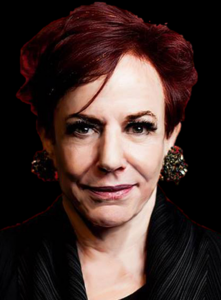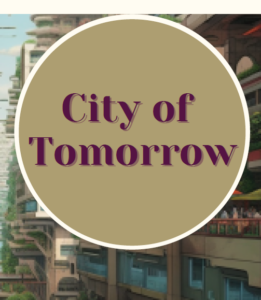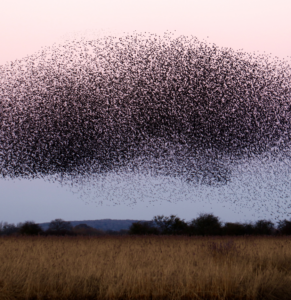April 26th, 2021
Maggy, Adam, and Faith welcome Boaz Gaon, CEO of Wisdo.com to discuss the healing power of community and using social media for social health, and not just likes. We dive into the inspiration behind Wisdo.com, and how the concept of helping others is allowing thousands to truly help and heal themselves.
Transcript
Adam: I think you guys are gonna love this conversation and love Boaz. We’ve all worked with mission-driven businesses, but this is… And I’ve worked with Boaz and Wisdo for a while, this is probably one of the purest and most important mission-driven businesses that I’ve been affiliated with or had the pleasure to work on. So I think he’s really proven you can do well by doing good. It’s really an inspiring story.
Faith: Well, I can’t wait to hear it. Fantastic.
Maggie: I loved reading his bio, it’s fascinating.
Faith: Yup, sounds like a beautiful guy.
Adam: So let me bring him on. Boaz is founder and CEO of Wisdo, which is a social health platform, which brings together people who’ve been there, people who are there now to support each other, to share what’s been happening to them and to make the community stronger in the process. So without further ado, here is Boaz.
Boaz Gaon: Hello.
Maggie: Hello.
BG: How is everyone?
Faith: Hi. We’re good, we’re good.
BG: Nice to meet you.
Faith: Yeah, thanks. We’re so impressed already. You almost don’t have to say anything.
BG: Oh with the books?
Faith: With the book, you, Adam adores you. Everything.
BG: That goes both ways.
Faith: Oh, good. So, Adam?
Adam: So Boaz, I gave a bit of very teeny little sliver of background. Why don’t you kind of set the stage as you’re so good at doing and tell Faith and Maggie and our audience, how Boaz and Wisdo came to be.
BG: Uh well, Boaz you have to ask my mum. But in terms of Boaz and Wisdo, Wisdo is the first and currently the most successful social health platform, and I’ll explain what this combination means. The strange combination of Social, which we have kind of gotten used to, look at something that doesn’t necessarily increase health, and this word health, and Wisdo is a best-practice social health platform.
BG: What we do? We help people feel better about where they are and where they can be by surrounding them with the right people and introducing those people into their lives, and the way we do that,and then I’ll back track and talk about my own personal kind of journey into Wisdo it’s really changing the fundamental criteria that is currently used on all social networks, which is used to introducing you to different people online.
BG: So all social networks introduce you to people who rank by two criteria. One is, how popular they are, and the more those individuals would be popular, then the higher their rank on the platform. How many likes they have, how many followers they have, et cetera. And the second criteria is gonna be whether you and them have a mutual circle of friends in common, what’s called the social graph.
BG: We’ve taken a look at that and have really kind of gotten to a place where we think that part of the reason that loneliness trends are rising all across the world, even though more people are connected to other people online than ever before, is because that type of matches and connections create a cycle of judgment, competition, who’s most popular, can I say this
Adam: So in our book Dictionary of The Future, which was written before Facebook, we have a term comparative anxiety, to describe exactly what you just set forth before anybody even thought about the downside of the Internet and its ability to give people that sense of unease.
BG: Yeah. Since we started looking at this, it’s kind of been universally embraced. That the way that all of us are introduced to other people on the bigger social networks, in the long run, decreases our health. Decreases our mental health and emotional health, but even more interestingly, in some cases, also affects our physical health in a negative way.
BG: While, if you introduce people to other people online based on a criteria that helps them feel better, you can reverse that trend and those criteria are; one, helpfulness rather than popularity. So has that person been helpful to others? And the more people are helpful to others, the higher they’re gonna rank on Wisdo and the other criteria replacing the question whether you and that person have friends in common, is the question whether that person has been in your shoes.
Faith: Interesting.
BG: So have you and them experienced the same things, and the person on the other end would be able to say, “I get it. I understand. I’ve been there. I’ve been there, I understand, how can I help?” And that is really what we’ve built, what’s been happening lately is we have really interesting data, that is coming at from our work with some of the major healthcare partners in the US.
BG: Where we actually see that we can decrease isolation and loneliness by anywhere between 50%, 60%, and we can decrease something called unhealthy days, which is the standard, the CDC standard for measuring mental health and physical health. We can decrease unhealthy days by 24% within 60 days. So that hypothesis that we had, whether introducing people to other people online in this way can improve their health is being validated by the data, which couldn’t be more satisfying, especially on the heels of the aftermath of COVID-19.
BG: So that is kind of Wisdo’s story, very, very briefly. My own story, and the way I kinda tie into the necessity of building Wisdo is through an experience with my father. Like everyone on earth, I was caught by surprise when suddenly a consequential life journey suddenly erupted into my life and that in my case, it was my dad being diagnosed with cancer two years into his tenure as the president of the Israel Cancer Association, and then for eight long years experiencing the frustrating irony on the one hand, having access to the best doctors and the best hospitals and the best academic knowledge, but at the same time, feeling completely alone, completely at a loss, not being able to find people who would be helpful, not being to find people who’ve been there, and when my dad passed away after eight long years of struggling through that, I decided to try and take a look at that and see whether we can build a platform that can change those dynamics.
Adam: It becomes solvable. Do you think that also a lot of people don’t recognise it. It’s sort of like a fish doesn’t know the water? Like if you’re in a state of loneliness, it’s just the way things are, and you don’t step back and say, you know, I’m really feeling lonely?
BG: I think so. I also think that it’s hard to ask for help, and I think that, again, we’re living… Social networks used to be a new thing, and there was a magic around the ability to connect to everyone anywhere, and now it’s no longer new, and it’s no longer novel, it’s just how we live, and that has kinda dictated a whole culture, which is now a fact of life.
BG: If you’re not applauded by your circle of friends online, then that means that you have done something wrong, and that actually is… I have a good friend who worked at Facebook for many years, and then he was on the Wisdo board, and he said something really interesting, which is that… If you have gotten 100 likes on Monday, and then you’ve gotten 50 likes on Tuesday, you don’t celebrate the 50 likes that you’ve received, you mourn the 50 likes that you’ve lost.
Adam: Yeah.
Adam: What you described in terms of I mourn the 50 I lost, that’s cognitive bias of loss aversion. We are wired not to wanna give up anything, so we obsess over the fact that we don’t have as many likes as you had before. Do you think… Let’s talk about gender for a second, ’cause men are notoriously far less confident of sharing their feelings. So do you find that there’s a male skew to loneliness?
BG: We don’t see that in the data. What we do see in the data, and just to give you an idea. We have about two million registered users right now from all age groups. And we have people in their 20s and 30s and 40s. And we have a very exciting partnership with one of the Medicare advantage healthcare companies, where we’re working with people who are 65 and older. So we do have a pretty interesting range that we can look at. And the answer is, unfortunately, loneliness is age-agnostic. It’s just that the trigger again, that gap is going to hit you differently in different phases along your life.
BG: So when you’re younger, it’s gonna be the gap between people who know something about, which is relationship-related or career-related, or starting your life as an adult. If you’re older, it might be post-retirement. People who share your passions and you no longer have a kind of work cycle, which provides an ongoing supply of people that you might wanna chat with, and that’s when you feel that gap. So it’s age-agnostic. It is gender-agnostic. What is interesting is that, and it’s not gonna surprise anyone, but the higher you rise on the helpfulness pyramid on Wisdo, the likelier that that person is gonna be a female. So that might mean that women are more helpful than men.
BG: It can also mean that they’re quicker to offer help and are more open to the idea of stepping out of yourself and helping someone than men. But when you start out, so the base of the pyramid is equal, but then the higher you rise in terms of, we have badges like helper and guide and you earn them, the more you help other people. Very clearly, the people on the higher end of the helpfulness pyramid, the majority are women.
Faith: I mean, is that how some of the… Like we Jews you know have Shiva, somebody dies and that’s kind of like that in a way that while you feel less lonely, people keep coming and coming and coming, they stop. So I guess there are institutions and various groups that help with loneliness and sadness.
BG: That’s also really interesting because humanity was always about that. Humanity was always about wisdom, and it was always kind of the elder in the village, and if you read Aristotle, it’s all about practical wisdom and as kind of the master virtue. Certainly in Judaism, and almost in every culture and period in history, the advice… The helpful advice coming from someone who’s been there, was always seen as the ultimate type of knowledge that all of us need to strive for, and then something happened in kind of human culture where that type of knowledge was eroded over time.
BG: That the rise of popularity-driven social interactions has something to do with that, and I think looking at my kids and talking to wisdom, talking about wisdom with them, that’s a whole different kind of conversation with them, versus someone like my mom, certainly someone who lived a few hundreds of years ago or when you read the literature and what they wrote. So I do think that there’s been a harmful erosion of that, of the universally historically, no-brainer understanding that experience, helpful experience-based knowledge is the ultimate knowledge that can help us live well.
Adam: So maybe give everyone a sense of what happens, what are the nature of the conversations on Wisdo? What is life on Wisdo like?
BG: Imagine a world where you’re continuously introduced to people who just wanna help you. They’re just dying to help you. You don’t need to chat with all of them, but as soon as you start talking to them, you’re gonna experience real friendship and it’s gonna be a conversation that you’re gonna feel… You know that expression, where have you been in all my life?
Adam: Right.
Faith: Yeah.
Faith: In many cases, it’s based on you and that person feeling a connection, which is based on shared experiences. So imagine a world where you’re continuously offered people that when you do start chatting with them, that is what you experience and how enriching that is.
BG: And the other thing that I would say, sort of life on Wisdo, I think we’re underrating and underestimating how incredibly therapeutic it is to help others, and that’s another thing that we see. Roughly 20% of people joining Wisdo become what we call helpers, which is the first step towards becoming even more evolved versions of a helpful person, and when people do become helpers and reach that threshold, they’re invited to write on the app, which appears on the profile, why they wanna help others, what happened in their lives that really kind of brought them to a place where they wanna be helpful to someone.
BG: And people write just incredible, incredible stories, and it’s mostly about, “I’ve been there, I was alone, I met someone on Wisdo, my life changed and I wanna give back”, and then when they do that repeatedly, health rates improve, self-esteem improves, connection, number of connections, which literature knows to identify as a predictor of better health. So there’s that famous study where if you have at least six confidants or six people in your life that you can identify as confidants, then you’re gonna have a much better quality of life than people who don’t. So I’d say between those two things, what is continuously being introduced to people where you’re gonna have amazing conversations that would blow you away, and given the opportunity to help others and experience the amazingly gratifying moment where someone says, “Thank you, thank you for saying that.” That is life in Wisdo.
Faith: Can you tell us a Wisdo’s story that will make us cry?
BG: We had one user who came in to the PTSD community, and he became a helper and then he became a guide, and then became a super guide, and then one day he sends us a letter and he says, I just want you to know, you all know me, but you don’t know my story, and my story is, I was a firefighter in 9/11, and I saw people die, and I lost friends, and I lost brothers in arms, and he was severely traumatized and he left the fire fighting unit that he was part of, and he felt as if he would never be able to help someone because he was going through a very, very difficult patch and rough patch, and then he found Wisdo and then he joined the PTSD community, and then he started to chat with people who’ve been there, and he started to help others, and then he wrote, “Thank you for rescuing a rescuer.” and that was beautiful.
Faith: Tell us another one.
BG: Another one?
Faith: Yeah.
BG: We had an instance where a box materialized in our offices and you know boxes materializing in offices and you don’t know who sent it, it’s…
Faith: It could have a bomb.
BG: A concern, especially in this part of the world. So we very whatever went through the whole procedures and then eventually we opened it and it was filled with presents to the kids of people who work at Wisdo, sent by…
Maggie: Oh God!
BG: Sent by one of our users, also who became a guide and her journey was through coming out. So she came out and she was married and then she came out and she separated with her husband and then she met the love of her life, but it was a very very difficult journey that she had to go through completely alone and then she joined the coming out community at Wisdo and met other people who went through the same journey and then she just said that she wants to bring joy to us like we brought joy and happiness to her life, and that’s why she sent that box. I can go on and on…
Faith: Oh my God. I could just stay here all day.
Adam: So why don’t you just spend a couple minutes describing how the community structure works, how the existing community is and how you can start your own community.
Maggie: Thanks Adam, and I’d like to add to that just a little bit which is are there any communities for people who have specific mental or physical challenges as well?
BG: Yeah. So the answer to that is yes. Physical and mental health are one of the bigger kind of buckets where you would find quite a few communities. The other being things like self growth and identity and family, but certainly mental and physical health are very vibrant.
BG: In terms of how the communities are built, it’s also quite interesting. But usually what happens when you join a social network or a peer-to-peer kind of group, is that you’re asked “Which community would you like to join?” and then you say whatever anxiety and then you’re dropped in a group with 200,000 people who have been through anxiety at some point and it’s like good luck, while what we do is after we show you a myriad of life experiences that you might have experienced or might be preoccupied with, and you choose up that first one that you would like us to kind of build a supportive network around you for, we show you what we call a timeline which is steps along the way that other people have reported as moments in that journey that you should know about and then you have two engagement opportunities with that list of steps.
BG: One is to click “been there” and the other is to click “there now” and people go “been there, been there, been there, been there, there now, there now,” really mapping themselves very, very granularly. Every “been there” click will show you how many people you might be able to help because if you’ve been through that, maybe there’s someone else who’s there now that you can help, and if you click “there now” we show you how many people can help you.
BG: So immediately, we have a very deep data set to work with that can help you connect to supportive others both one-on-one and also in a group setting, and also as Adam said, there are also groups that people create around them, that tend to be smaller and more intimate, and what Wisdo is gonna do is continuously show you new groups and one-on-one connections that you can make, so you can choose, what would you like to do today.
BG: What we found, by the way, is that both of them are complimentary because the groups are more of a discovery opportunity, what’s new, what are people talking about? What have I missed?
Faith: Wow! So how many times do you get these groups together, IRL in real life, you know showing up?
BG: We don’t. The only thing that we’ve done is events that are targeted at our guides, so the higher echelon of moderators, where there’s a sense of camaraderie built over time, and also we know that they’re the best of what humanity has to offer.
Adam: Are you finding that… ’cause really, what you have is one of the largest, if not the largest, social experiments going on in the world, and a lot of data behind that. Are you finding that users decrease their time on traditional cost social media and spend time…
Faith: That’s a good question.
BG: That’s a very good question. I think that generally speaking, what we’ve seen in the trend is that people don’t delete their accounts on Instagram, Facebook, Reddit, Twitter, all those humongous social networks, because again, it’s like going off the grid. It’s a good idea, but no one that you really know does that. No one turns off the electricity, it’s part of life, but they do spend more time on apps and products that they associate with well-being.
BG: So you don’t see people leave, you don’t see a number of users dropping, you do see things like, for specific populations, time, number of sessions dropping. For the first time ever, you would see confined stories about the number of sessions or total number of minutes spent on social network kind of dipping for specific age groups and specific experiences, and I think part of the reason is… And I think COVID actually accelerated the understanding that yes, we can connect to anyone, but that is no longer what is kind of magical. We were taking that for granted.
BG: By the way, it’s an amazing thing, right? It’s mind-boggling, but it’s no longer novel, and now what is kind of the magic that people are looking for is quality connections. So yes, I can connect to anyone, but who should I connect to and who can really help me make progress, and development.
Faith: I’m thinking about how I can help already, you just put out that vibe, help vibe is to say, I can’t imagine a CEO of a major Fortune 200, that wouldn’t bring this on, and I don’t think they know about it. That’s the only reason. I mean.
BG: I agree, I agree. Well, we’re a young company, but hopefully you’re gonna help us spread the word.
Faith: Adam told me that I would absolutely fall in love with you and I have because I don’t know that many good people. We’re in rough New York.
It’s just nice to meet an angel, and I wanna tell you Boaz, that yes, you are an angel, and I’m encouraged about humanity, just being in the presence of you.
Faith: He also gives people the ability to be more humane. To me, one of the fascinating things is the reward that this brings to the helpers. There’s a lot of research says, Martin Stellar particularly on one of the secrets of happiness is being grateful and acting grateful. There’s a physiological reaction in the brain. Dopamine is released. So I think people are surprised. They come to…
Faith: To get help.
Adam: Exactly, and then they see “Wow, my life has changed by being the helper.”
Faith: It’s beautiful.
Maggie: Adam I’m thinking about the positive psychology programs at like UPenn and Yale and how this correlates to that, for sure.
Adam: It does. It does.
Adam: Boaz, thank you for joining us and.
BG: Pleasure to meet you.
Adam: Talk soon.
BG: Thank you so much.
Adam: Bye bye.
Faith: See you later.
Maggie: Bye.
Adam: Bye bye.





